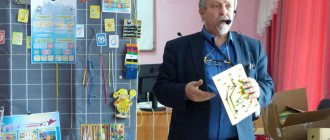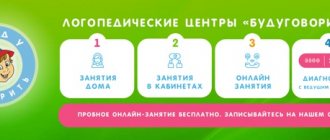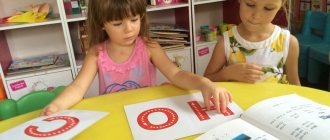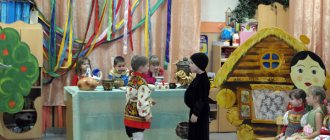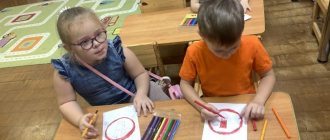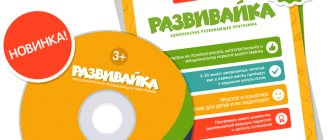Peculiarities
Graduality, versatility and creativity are not a complete list of features that the theater group at school has. The program focuses on the diversified development of children’s personalities, their individuality and uniqueness. The club plan is drawn up taking into account the psychological characteristics of the development of schoolchildren in different age groups.
Traditionally, the program provides for the use of gaming and theatrical forms of activity, which are aimed at using different types of children's creativity. The theater club at school has one more feature. What is important here is not the final result, i.e. the performance itself, but the preparation process - rehearsals, moments of over-fulfillment and experience. It is in the process of working on a specific role and image that children’s personal qualities, their symbolic thinking, emotions develop, and specific roles of a social nature are learned.
Why ANO?
Clients often come to us with the need to register their theater due to the fact that previously they were able to cooperate with local authorities, receive premises for rent and benefits from the city, as individuals or limited liability companies. However, recently the situation has changed dramatically and it is no longer possible for government agencies to cooperate with citizens as individuals or limited liability companies. A formal request, an application from a non-profit entity, is required to provide certain benefits or premises for rent. Even to promote a certain initiative, being just an individual is no longer enough.
And so if you want:
- support initiatives of federal and regional authorities in the field of performing arts;
- participate in joint programs, projects and events together with other organizations for effective work in the field of art, culture and creativity;
- participate in grants and receive funding from the state;
- receive premises on a preferential or free basis from the state;
- establish and award awards, prizes, scholarships on behalf of the theater to persons who have achieved significant success in the field of culture, art and creativity;
- attract investments aimed at improving the material and technical base of the Theater;
- attract funds from interested individuals and legal entities on a voluntary basis for the development and organization of the theater;
- hire specialists and involve them in cooperation, create and organize the work of groups (temporary work teams) of scientists, experts, analysts, programmers and developers, teachers.
Then we strongly recommend that you register the theater in the form of an autonomous non-profit organization to achieve your goals, both private/personal and public.
Tasks
Certain goals and hypotheses are an integral part of the characteristics of the theater club at school. The program is built taking into account the following tasks:
- Introduction to the concept of theater, as well as its different types.
- Mastering various types of creativity. The whole process is carried out in stages.
- Improving artistic skills.
- Modeling behavioral situations within the framework of an established task.
Thanks to this, the circle is aimed at two aspects at once: educational and educational. The first involves completing tasks aimed at developing intelligence, emotions, as well as a variety of communication skills in children. The second aspect is responsible for the development of artistry and specific stage performance skills.
Drama Club Program
Explanatory note
It has long been universally and unconditionally accepted that theater contributes to the external and internal socialization of the child, i.e. helps him easily enter into team work, develops a sense of partnership and camaraderie, will, determination, patience and other qualities necessary for successful interaction with the surrounding social environment;
the theater activates and develops the intellectual and at the same time figurative and creative abilities of the child, he begins to freely fantasize both in the field of text, and in the field of spatial layout, and in the field of musical design;
theater stimulates interest in literature, children begin to read with pleasure and more meaningfully than before;
When using the dramatization method in classes in any subjects, children learn the material undeniably better for several reasons: it becomes personally significant for them, and, in addition, it is passed through motor skills, through the body, which perceives information much better than hearing alone.
The “Dramatic” club program is built, first of all, on teaching students self-regulation and establishing interpersonal processes. The teacher’s activities are aimed at developing voluntary attention, work mobilization, the ability to distribute responsibility, the ability to read the behavior of another person and choose the right type of behavior to solve life problems.
The drama club program is designed for classes with children for 2 hours per week (68 hours).
Children's age: 7-12 years
The goal of the program: harmonious development of the child’s personality through aesthetic education; development of his artistic and creative skills; moral formation.
Place of the course in the curriculum
The circle is allocated 2 hours a week for work.
(34 academic weeks - 68 hours)
Results of circle work.
As a result of mastering the “Dramatic” theater club program, students receive a whole range of knowledge and acquire certain skills. By the end of the year they should:
- Be able to correctly assess the consequences of human activity and one’s own actions;
- To achieve a state of acting freedom, to be able to live out one or another literary plot using the sketch method, to improvise in a fairly short period of time;
- Cultivate in yourself such qualities as responsiveness, empathy, desire to help, self-esteem, confidence;
- Master communication skills, adapt quickly, feel comfortable in any environment.
- Personal results
are the education and development of socially significant personal qualities, individual personal positions, and value systems. Revealing attitudes towards work. A system of norms and rules of interpersonal communication that ensures the success of joint activities. - Meta-subject
results are students’ mastery of universal methods of activity, used both within the educational process and in real life situations. - The substantive
results are basic information about theatre, art and stage activities, accessible by age, and about the foundations of the culture of creative work. Elementary skills of subject-transformative activity, elementary experience of creative activity.
Contents of circle work.
Main content
The theater group's activities consist of work on the stage implementation of the play. It is based on the principles of realistic theatrical art. This is a necessary condition for solving the entire complex of artistic and educational problems. It is necessary to help schoolchildren act in stage conditions authentically, logically, purposefully, and enthusiastically reveal the content of the roles available to them and the entire play in action and interaction with each other. Genuine stage action requires constant reference to life, comparison and evaluation of what is happening in stage conditions with similar life phenomena. It is important to develop students’ interest in such comparisons, to help them realize that the criterion of truthfulness and authenticity of behavior on stage is life. Particular attention should be paid to the ability to act with words, since, first of all, the thoughts, feelings, relationships, and aspirations of the characters in the play are revealed through the word.
Effective acquaintance with legends, traditions, rituals, games and
holidays of the Russian people: Christmas, Maslenitsa, Red
slide, Trinity expands the inextricable connection of art with life, with the origins
Russian people. Introduction to Russian folk genres: fairy tales,
songs, games, proverbs, teasers, counting rhymes.
Forms - improvisation of games, round dances, fairy tales, KVN.
- Forms and methods of work.
Drama club classes include, along with work on a play, conversations about art, including traditions, methods and forms of national stagecraft. Joint viewing and discussion of performances, films, visiting exhibitions of local artists and the national theater. Schoolchildren perform independent creative tasks: oral stories based on books they have read, reviews of performances they have watched, essays dedicated to the life and work of one or another stage master, including actors of Mordovian theaters. Conversations about theater introduce circle members in a form accessible to them to the features of realistic theatrical art, its types and genres, to the work of a number of figures in the Russian and Altai theater; reveals the social and educational role of theater and Russian culture. All this is aimed at developing the spectator culture of the circle members. It is advisable to begin practical acquaintance with stage action with games-exercises, improvisations, etudes that are close to the life experience of the circle members, which find an emotional response in them, requiring creative activity and imagination. It is necessary to discuss sketches, cultivate interest in each other’s work and self-criticism among circle members, and formulate a criterion for assessing the quality of work. It is useful to carry out etudes-improvisations of an educational nature not only at the initial stage, but also later - either in parallel with work on the play, or during the rehearsal process itself. Educational etudes-improvisations, which are not directly related to the play being rehearsed, can also serve as a good emotional release and help to increase creative activity and the general tone of the work. Work on the stage embodiment of the play is based on its in-depth analysis (identification of the theme, the main conflict, the ideological aspirations and actions of the characters, the conditions and circumstances of their life, the genre features of the play, the author’s style, etc.). It includes a preliminary analysis of the play; work directly related to stage performance.
Output results:
performance at school holidays, ceremonial and thematic assemblies, participation in school events, parent meetings, class hours, dramatization of fairy tales, production of fairy tales and plays for free viewing, holding creative literary evenings.
Main sections:
- Culture and technique of speech
- Rhythmoplasty
- theatrical play
- Ethics and etiquette
- Folklore
The program uses the following methods and forms:
1
.
According to the source of transmission and perception of information:
—
verbal (conversation, story, dialogue);
— visual (reproductions, films, photographic materials, demonstration of the teacher, individual lessons, cooperation in joint productive activities);
- practical (staging performances, exercises, sketches, rehearsals).
2.
For didactic tasks:
—
acquiring knowledge through familiarity with theatrical literature and terminology, through games, exercises, sketches;
— application of knowledge through staging performances;
— consolidation through dress rehearsals;
- creative activity - performances;
— verification of learning results through open lessons, competitions, festivals, seminars, integrated classes.
3.
By the nature of the activity:
- reproductive - development and display of sketches based on a model;
- partially search - during work, children are given tasks depending on their individual abilities.
The program uses the following pedagogical:
1.
Techniques:
.
- exceptions - the ability to detect and eliminate internal
obstacles and constraints on the way to creating and implementing an image;
— total expression — the inclusion of the actor’s psychophysical apparatus in the process of creating and embodying the image;
— physical action — building a role’s score based on simple physical actions;
- psychophysical gesture - helps the actor in working on the role.
2.
Principles:
—
visibility - the use of visual aids, decorations, sketches, TSO;
- active and conscious learning - creating a creative atmosphere in the studio involves the development of children’s comprehensive abilities, active and conscious participation in performances;
— cooperation — in the process of work, teachers and studio students act as partners (more experienced and less experienced). The principle of a creative workshop is most often used here;
— organizing the processes of acting improvisation in conditions of theatrical imagery;
- systematicity, consistency - training is carried out from the simplest exercises and sketches to staging a performance through the development of observation, fantasy, memory, imagination, sense of rhythm, etc.;
— individualization — taking into account the psychological characteristics of studying children and adolescents, to maximize their creative abilities and prepare them for any creative activity they choose in the future.
Organizational forms:
· Collective —
this form attracts all students; it is the most effective form of creative activity, because It is possible to get the job done with the least amount of effort and time.
· Steam room —
calculate the work for two.
· Individual —
The completion of a task in a group usually proceeds unevenly, so it is necessary to carry out individual work, often additionally explaining the task.
The form of pedagogical activity is an educational lesson.
Form of group work —
group survey, group sketches, rehearsals.
Program content
1. Introductory lesson.
· Dating games: “Introduce yourself kindly”, “Autograph”, etc.
· Introductory talk about theatrical art
· Games “Ants”, “Cactus and Willow”
· Safety instructions during classes in the theater studio.
2. The skill of the actor.
· Psychophysical training exercises:
- warming up
– associated, as a rule, with the division of the musculoskeletal system into biomechanical units and warming up each unit separately;
- basic
– exercises in specific proposed circumstances, with warm-up, both individual links and the entire biomechanical apparatus as a whole.
- exercises to activate the imagination
- “turning a room into a store, swimming pool, spaceship, etc.” Pupils transform themselves, reviving and giving character to inanimate objects (a teapot, a tree, a crystal vase, a clock, etc.), and involving physical actions.
· single studies on topics:
- sketches on emotions,
- on the expressiveness of the gesture,
- for the development of organic matter.
The following theoretical concepts are studied:
· acting score
– this is the ability to adjust one’s behavior in relation to an object, partner, or event.
· stage attention
- an active cognitive process in which vision, hearing, touch, and smell are involved, as a necessary condition for organic action. To train this important process in acting, there are many different exercises that help students learn to keep their attention in a continuously active phase during the stage action.
· Games for the development of auditory attention, creative imagination and fantasy (“Sounds of the street”, “Sounds inside us”, etc.)
3. Stage speech.
· Vocal hygiene rules
· Methods of voice hardening
Hygienic and vibration facial massage
· Exercises:
A)
to strengthen the muscles involved in the speech process;
b)
to relieve muscle and psychological tension (exercises “Puppet”, “Explosion”, “Relaxing massage”, “Iron body”, “Humpty Dumpty”, etc.).
Breathing:
a) We train correct breathing (exercises “Ball”, “Rubber Doll”, “Ball”, etc.).
b) Introduction to the concept of “phonation” (sounding) breathing (exercises “Vest”, “Mosquito”, “Kitten”).
c) Training the muscles of the respiratory apparatus:
— preparation for breathing training (exercises for different muscle groups;
- breathing training.
· Articulation gymnastics:
· exercises for the tongue;
lip exercises;
· exercises for the jaw.
· Games and exercises for speech breathing “Game with a candle”, “Bad tooth”, “Whim”, “Bells”
Working on tongue twisters:
learning simple tongue twisters with a gradual increase in tempo (“From the clatter of hooves”, “Sasha walked”, “Ela, ate Klasha porridge with curdled milk”, “Forty forty ate cheese in a short time”, “Good pie, there is curd inside”, etc.) d.)
4. Staging work.
Special theater games (“Mirror”, “Look what I’m doing”, “The same thing in different ways”, “Transformation of an object”)
Preparation of miniatures, small thematic stage compositions that could freely become part of any concert program. The production work is divided into several stages. The choice of material should take place with close creative cooperation and interest of the students. At the same time, the more lively and active this first stage is, the easier it will be to build further work on the material already approved by the collective decision. The easier it will be for students to “appropriate” it for themselves.
In addition, it is possible to occasionally participate in performances for groups of second and third years of study.
5. Plastic.
· Acquaintance of pupils with their own body: with its anatomy, with its physical and psychophysical qualities, with its motor capabilities, with its problems and limitations.
· Warm-up:
- exercises to correct posture and gait.
- exercises to develop flexibility and strength (various types of push-ups, pull-ups, squats, bends, bending, turns; paired exercises with all kinds of partner resistance, locomotor exercises; exercises to develop jumping ability; statistical exercises; volitional gymnastics).
- exercises that regulate muscle tone, allowing you to relieve excess muscle tension, i.e. developing a quality that in theatrical practice is called muscle freedom.
- exercises that improve coordination of movements, developing the ability to isolate individual movements, compare them with each other, consciously control them and adapt them to obstacles (counter-rotation of various parts of the body, cyclic exercises, alternating exercises).
Games for the development of motor abilities: “Ants”, “Cactus and Willow”, “Palm Tree”, “Wet Kittens”, etc.
Ways to work with children
A theater group is a collection of various activities aimed at achieving certain goals. The process is carried out in several directions:
- Theater game. Teaches the child to navigate in a given space, independently build dialogues on specific topics, develop attention, memory, imaginative thinking and a general interest in art.
- Rhythmoplasty. Contains games and exercises of a rhythmic, poetic and musical nature. This direction provides children with a natural need for movement.
- Technique and culture of speech. It contains different types of activities that allow you to develop breathing and reveal additional capabilities of the speech apparatus. For this purpose, songs, tongue twisters, different levels of intonation, etc. are used.
- Basic theatrical culture. Children have the opportunity to get acquainted with the basic terms and concepts of theatrical art. They gain knowledge regarding the basics of acting, as well as learn the rules of spectator culture.
- Getting to know specific plays, stories, fairy tales, etc. This allows not only to develop skills in acting with imaginary objects, but also contributes to the overall intellectual development of the child.
The complexity and simultaneous use of these areas is an undeniable advantage that the theater group has. Planning plays a very important role here, since the effectiveness of the entire process will depend on it.
What do you mean by drama club?
The traditional age at which a child can be accepted into a drama club is 6 years old . But there are studios that teach the skill of transformation to children almost from infancy.
Theater arts lessons for children over a year old are conducted in a playful way and include teaching the following actions, which are initial theatrical sketches: growl like a tiger cub, meow like a kitten, and others. Based on all of the above, it is concluded that the age that is suitable for learning acting does not matter.
It is very difficult to understand what a child really needs, since no one except the baby himself knows this. Providing choice is what parents should be guided by when choosing classes that their young talent will attend.
Moreover, this applies not only to theater clubs, but also to any other sections. Putting pressure on a child is the main mistake that leads to undesirable results.
Active search and frequent change of clubs is not forbidden, because the child chooses which activities he will like and which he will never go to again. However, after each unsuccessful attempt to find what is needed, it is necessary to analyze the situation with the child and identify the reasons why the search was not successful.
It is difficult to predict whether a child will like to transform into characters from different works and perform in front of a large audience on stage. But it is important to appreciate and understand what classes in a theater studio mean for a preschooler.
Theater instills in children many vital skills, among which the most notable are:
Planning tasks
To ensure maximum effectiveness, special attention must be paid to the preparation procedure. The theater club plan provides for the solution of the following tasks:
- Developing sensitivity.
- Improving memory, observation, attention, thinking and reaction speed.
- Develop more independence.
- Improving the natural creative abilities of a particular child.
- Developing the ability to control your own body.
- Activation of associative type thinking.
- Expanding children's general knowledge.
- Teaching naturalness on stage.
- Strengthening children's understanding of theater, its types, etc.
- Expanding a child's vocabulary.
- Improving myological and dialogic speech.
In addition, the theater group also helps to foster respect for work, the formation of ideas about honesty, justice, kindness, etc.
Child's skills and abilities
In the process of rehearsals and theatrical play activities, children develop the following skills:
- Be able to move in a given rhythm, as well as voluntarily compress or unclench certain muscle groups.
- Be able to improvise in any situation.
- Good command of your speech apparatus.
- Quickly compose a monologue or dialogue with a partner.
- Be able to create a specific image or character.
In addition, children learn to work in pairs and teams, as well as resolve various conflict situations.
What influences the choice of a theater group?
To achieve maximum results for your child, you need to choose a theater group taking into account the following factors:
- Teachers' experience. Only experienced teachers with appropriate education can help each child.
- Discovery and a humane approach to productions. During the game, the child should feel comfortable and safe.
- Duration of training. The result of the process directly depends on how much time is allocated for preparation and rehearsals. It is optimal to do the work three times a week.
- Having a convenient schedule is also important. Classes should be held in convenient locations and in small groups. This will allow you to devote the maximum amount of time to each child.
The theater club is an excellent option for extracurricular activities. Reviews claim that such activities develop the child’s personality, allow him to try on unusual roles, and give him new skills. Rehearsals and preparation for performances teach children communication, the ability to work in groups and pairs, improvise and be natural in any situation.
Stages of preparing a performance
A children's theater group should work at least three days a week so that young actors do not have time to completely forget all previous rehearsals and theater lessons. This is very important for creating a complete and interesting performance.
So, what needs to be done to make the production memorable not only for the audience, but also for its participants themselves?
Immediately from the very first rehearsal, the circle leader must seek from each actor a believable performance and correct interaction with the other characters. If you initially allow incorrect play, then in the future it will be very difficult to correct it, since children very quickly remember both movements and manner of speaking. Show yourself how to move and communicate with your stage partners correctly.
